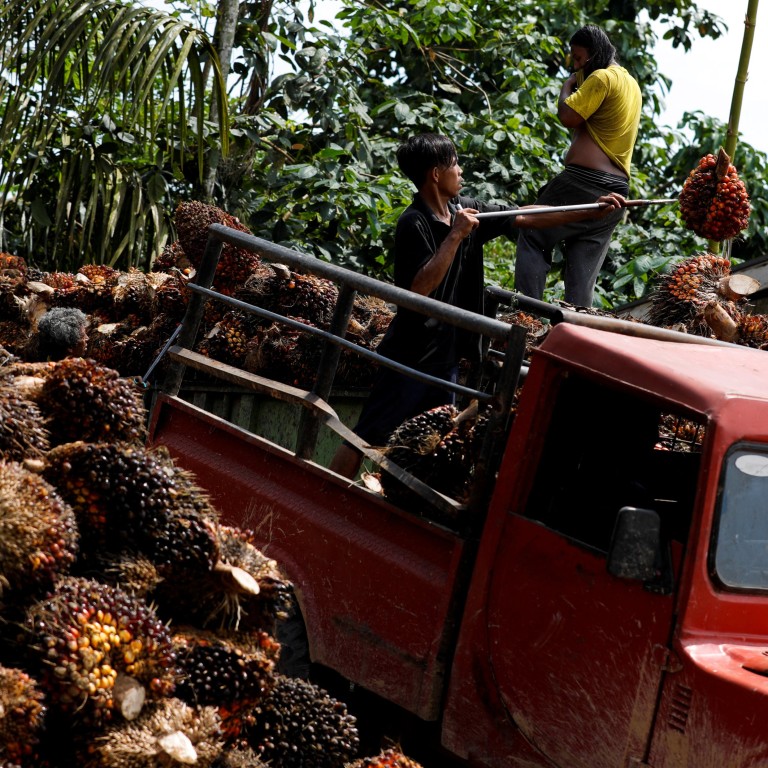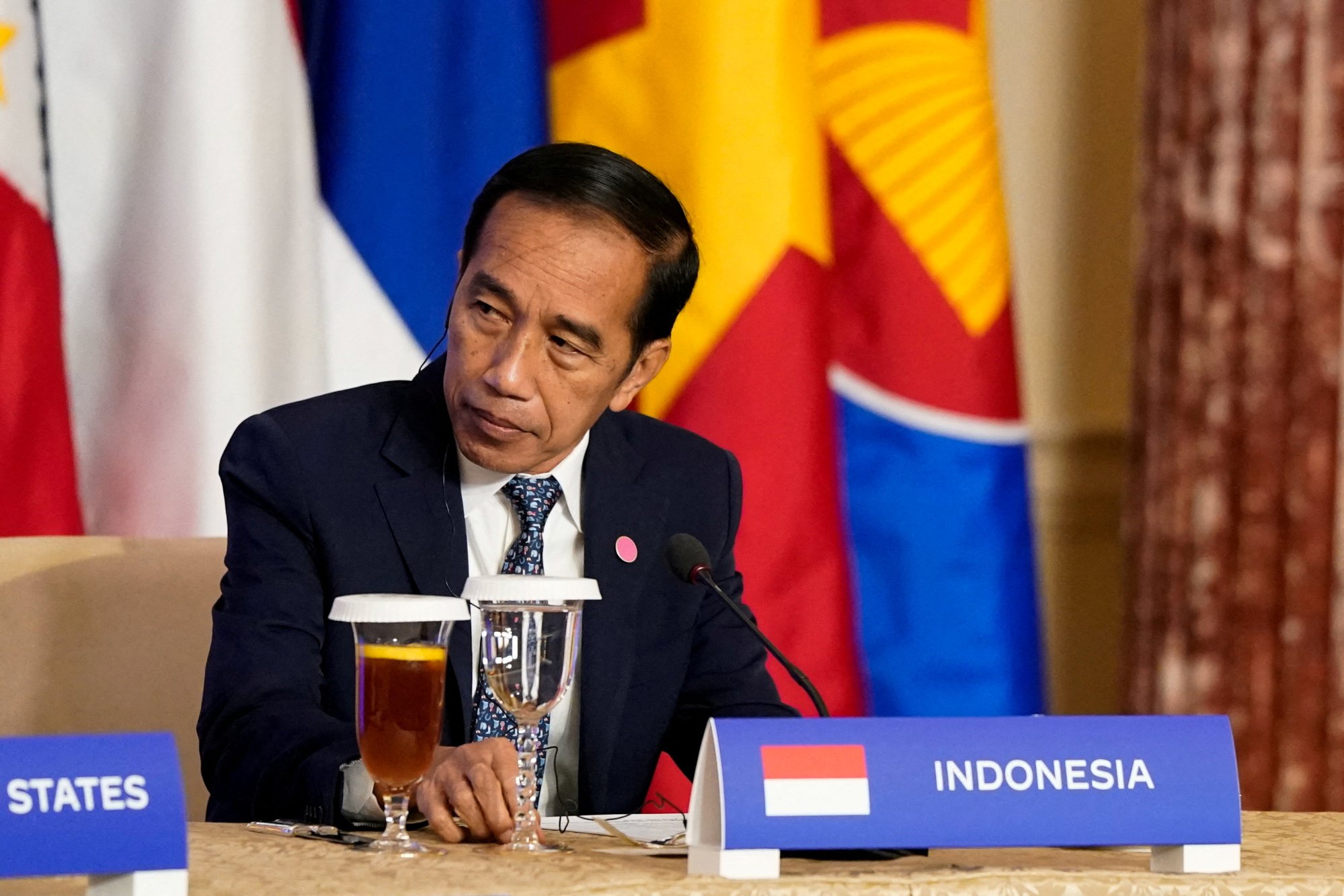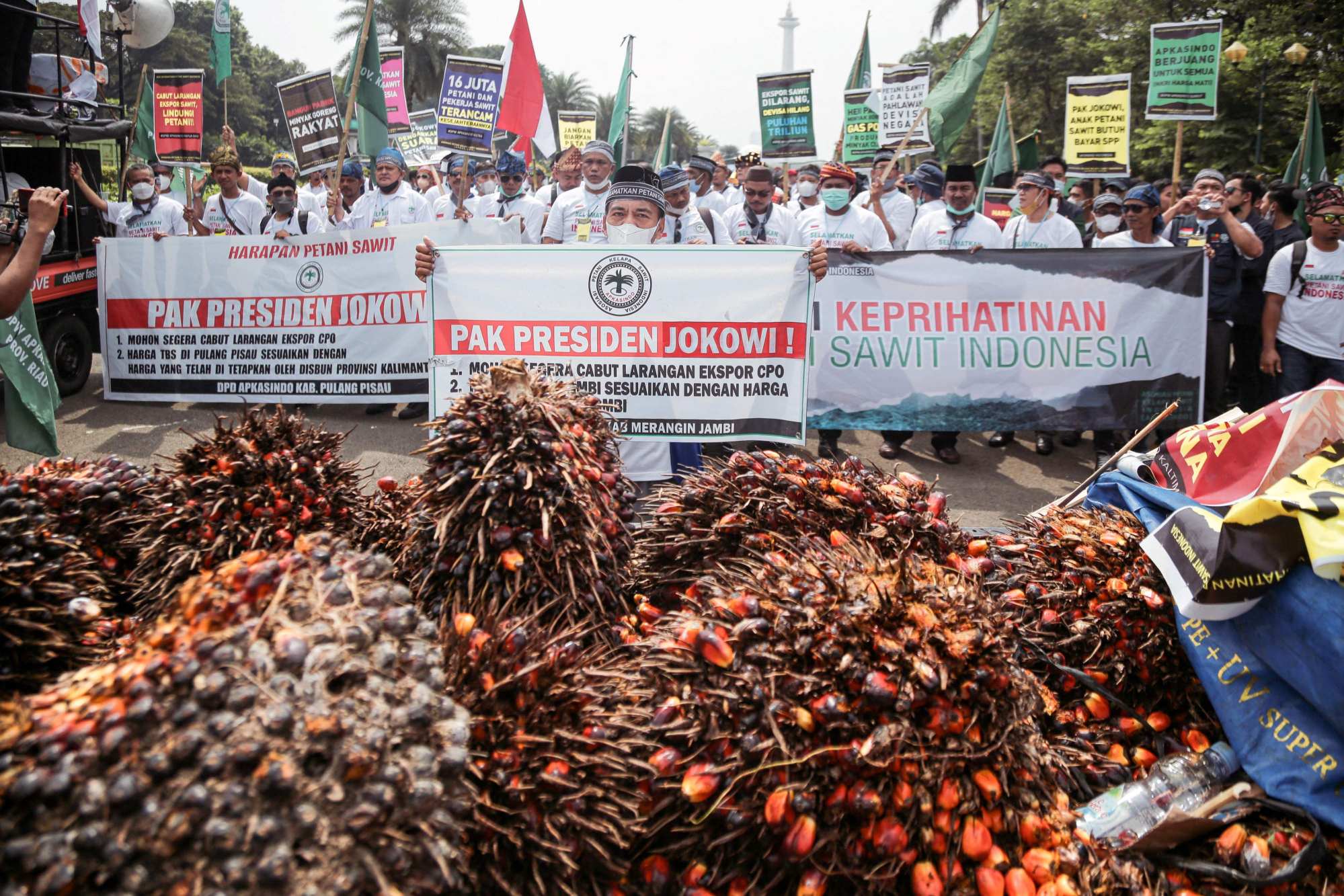
Indonesia’s Joko Widodo plans to lift palm oil export ban in relief to global markets
- Palm oil is used in everything from food to soap to fuel, and the move by Indonesia threatened to push up costs even more across multiple supply chains
- Ban rattled global vegetable oil markets already struggling after the war in Ukraine removed a large chunk of sunflower oil supply
Indonesia, the world’s biggest shipper of edible oils, lifted a ban on palm oil exports in a move that will bring relief to the global market after the war in Ukraine choked off critical supplies.
Exports of crude palm oil and other refined products including palm olein and used cooking oil can resume from May 23, President Joko Widodo said in an online briefing on Thursday.
The decision comes despite bulk cooking oil having not yet receded to the targeted 14,000 rupiah per litre price, as the government considers the welfare of 17 million workers in the palm oil industry, the president said in a video statement.

Jokowi, as the president is known, said the supply of bulk cooking oil has now reached a level greater than what the domestic market needed.
“Average price of [bulk] cooking oil before the export ban in April was 19,800 rupiah per litre and after the ban the average price dropped to around 17,200 to 17,600 rupiah per litre,” he said.
Indonesia’s ban, which was imposed since April 28, was one of the biggest acts of crop protectionism since Russia’s invasion of Ukraine, which stymied exports of sunflower oil and worsened a global shortage. Palm oil is used in everything from food to soap to fuel, and the move by Indonesia threatened to push up costs even more across multiple supply chains at a time of rampant inflation.
Why did Indonesia suspend all exports of palm oil? One word: voters
After the ban came into force, Widodo said supplying the country’s 270 million people was the “highest priority” of his government.
But Jakarta came under pressure for further saddling prices that were already skyrocketing after Russia’s invasion of agricultural powerhouse Ukraine.
The surging costs helped push inflation to a three-year high in April.
Domestic supplies of cooking oil also tripled after the ban from 64,500 tonnes per month to 211,000 tonnes, he said.

Palm oil makes up more than a third of the world’s vegetable oil market, with Indonesia accounting for about 60 per cent of palm oil supply.
Industry figures hailed the decision to resume exports.
Eddy Martono, secretary general of the Indonesian Palm Oil Association (GAPKI), said the organisation “is very grateful to the government, especially to the president” for lifting the ban.
“It is a fact that the condition on the ground is very difficult because the tanks have been all full. We hope with the export reopening, the palm oil production can return to normal.”
In Indonesia, the simple act of buying cooking oil has turned deadly
Oil Palm Farmers Association chairman Gulat Manurung thanked Widodo and said oil palm farmers would repay his decision by boosting domestic supplies.
“We, oil palm farmers, pledge to help ensure that domestic supplies of cooking oil will be available,” he told Agence France-Presse.
Separately, palm oil farmers union SPKS in a statement said it hopes plantation activities will soon return to normal due to the removal of the ban.
Authorities had rigorously enforced the export ban, with the Indonesian navy seizing a tanker carrying palm oil out of the country in violation of the order earlier this month.

Palm oil producers staged protests last week in the centre of Jakarta and several towns in Indonesia complaining that the prices for palm oil fruits had dropped dramatically.
Palm oil is the most widely used vegetable oil in Indonesia and, despite being the world’s biggest producer, the country has been facing a cooking oil shortage for months because of poor regulation and producers reluctant to sell at home.
The shortages have in some cases forced consumers to spend hours in queues at distribution centres.
